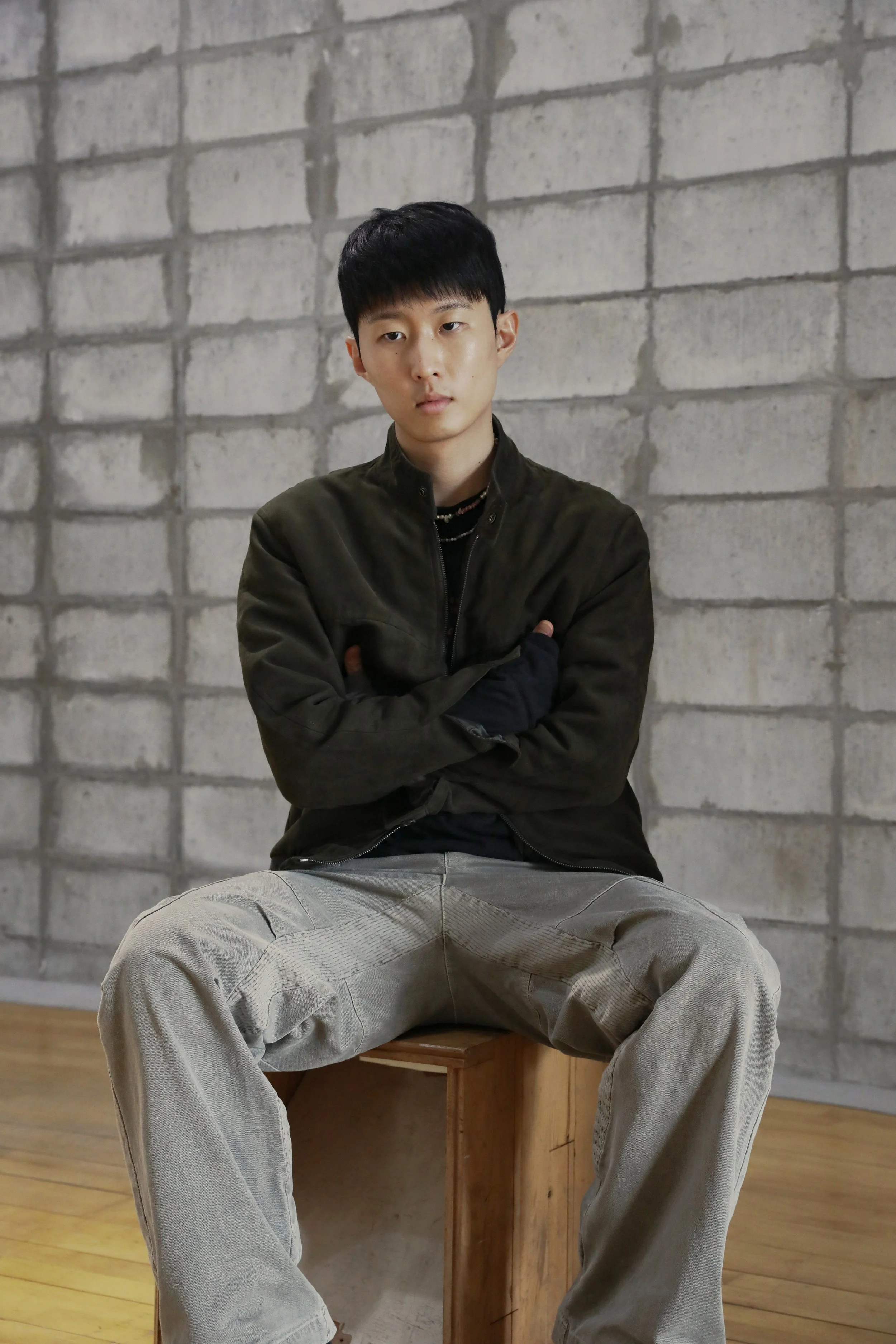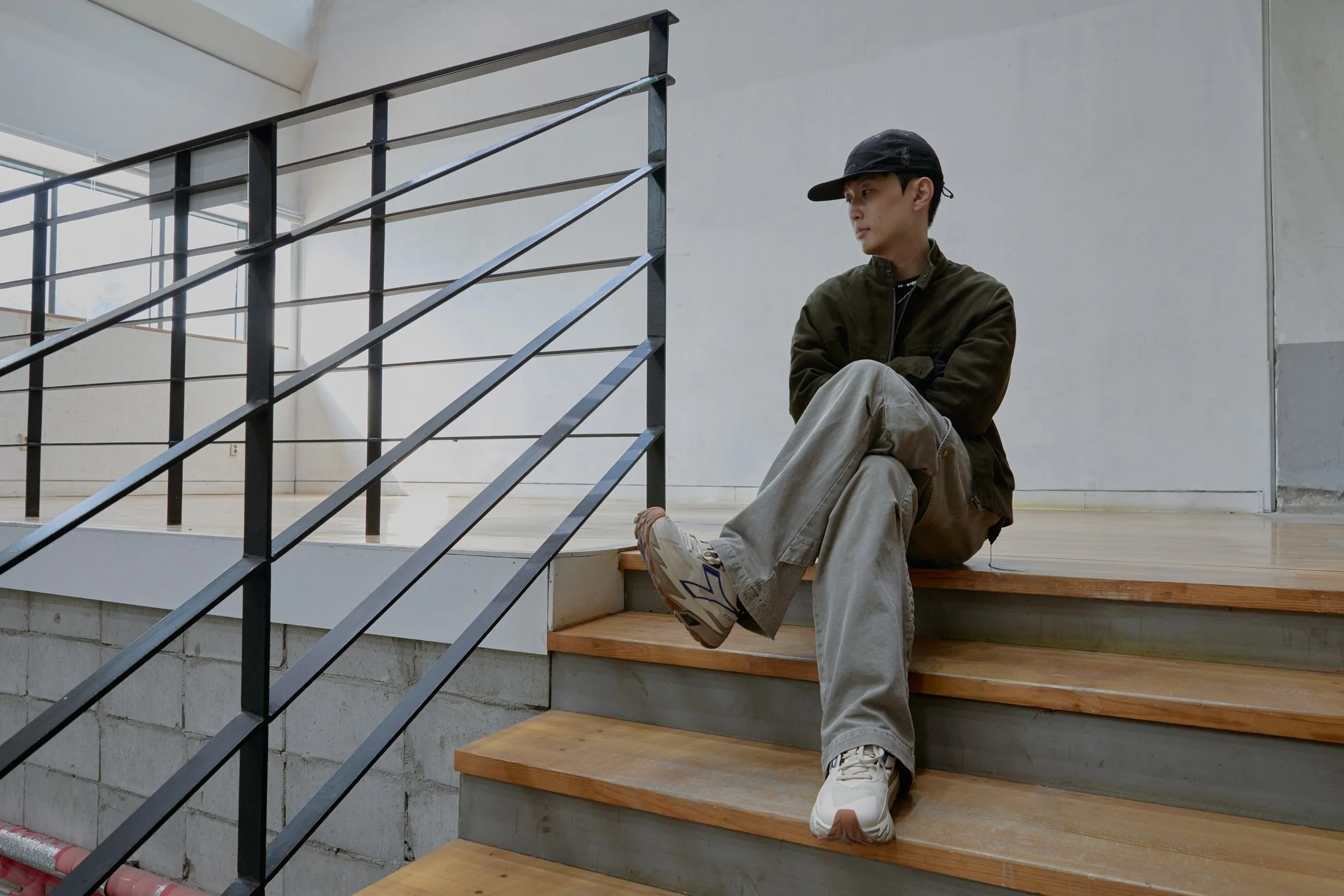Blish Is Transforming His Trauma Into Art
The Korean producer makes his debut as a singer-songwriter with the album “Wanderland”. The work, he says, covers the most traumatic time of his life.
You likely won’t find another album released this year as ambitious as Blish’s debut “Wanderland”. The singer-producer is as much a technical innovator as he is a curator, assembling a diverse team of collaborators for the album, from revered legend eAeon to indie darling 4BOUT. Throughout ten tracks, the Korean producer and singer creates a sprawling homage to the turbulence of his twenties. He writes candidly about grief, grapples with questions about spirituality, and ultimately, looks for hope in the darkest corners of life. But it’s his imaginative production that truly gives Blish’s music vitality. He’s an innovative producer whose music takes the form of a carnival ride that lunges and shifts at unexpected moments. His songs become living beings due to how much space he gives the music to breathe and change.
“It’s an album that depicts my early twenties to the present, which had a lot of difficult moments,” Blish told me recently in an interview from Korea.
“Wanderland” excels at presenting this as a tension between light and dark matter. On the opening track “Rewind”, 4BOUT sings, “Every cloud has a silver lining/ Your day will come, hang in there.” But darkness underlines nearly every corner of “Wandering” as the singer excavates traumatic memories that shaped his youth. On “Morrow” he wonders why “I’m just like the bastards I looked down on”. His fears surround not just death, but the painful memories of isolation. “As we grew up we became friends with regret,” Blish sings on “Morrow” before adding, “And the void will always be my friend/ I have tried but the dark seems to come around.”
Blish grew up in Osan, Korea, a city just twenty-two miles south of Seoul. “My childhood memories are filled with pure moments of hanging out with friends, especially playing a lot of soccer,” he told me, “and whenever there was a festival or stage at school, I always loved to step up front and sing or dance.”
In Korea, Blish’s favorite music was K-Pop legends like BIG BANG and Girls Generation. But the world opened up for Blish when he moved to study in the Philippines in middle school and discovered music made in the West. “That’s where I came across Akon and T-Pain’s music, and it hit me with freshness and shock,” he remembered. “That’s when I started getting interested in music.”
When I asked how his family and friends reacted when he decided he would pursue music as a career, he remembered everyone being supportive. “I have always enjoyed singing and dancing in front of many people since I was young,” he offered. No one was surprised.
But music also became a way to escape and to externalize the pain of his childhood. “I had difficulties in forming relationships due to the trauma of being bullied in middle school,” he said. Those experiences haunted him as he grew older.
Things didn’t get any easier once he graduated from college. “In Korea, getting into a good university is quite important for finding a job later on,” he explained. “In my early twenties, I struggled with not being able to get into the university I wanted and wondering what I should do in the future, what my life goals were, and what I wanted the most.”
Blish discovered that he enjoyed producing. His early music was made in the style of GroovyRoom, a producing duo from Korea who make hip-hop and trap music. Blish’s own music was “more rudimentary” than the impressive beats GroovyRoom were making – but it was a start. His favorite genres, he learned, became something special when he began to bridge them together. “I mixed them harmoniously into my music,”he said, “[and] I felt like I found my own signature sound.”
Today Blish engineers music hat appeals to as wide of an audience as possible, but it’s his singular creativty as a producer that makes him stand apart. “As an artist, I always feel like I’m someone who pursues something different,” he explained. “I want to tell my own story that stands out from others, and I want to create a sound that reflects my unique feelings.”
Working with other artists gave Blish the opportunity to try a number of different styles. “I consider the style that the artist has pursued so far,” he explained about how he collaborates. But his best work comes from experimentation. “When working as a producer, I usually just sit down and play the keyboard or try out samples until I get a good feeling,” he said. He was especially grateful for the glitch pop artist eAeon for his support. “He had been making music since before I entered elementary school, so his experiences and advice were a great help to me,” he said. “And I was really grateful as a rookie to receive a lot of support and interest from him, who supports new artists a lot.”
Even as he was finding his footing as a musician, Blish’s personal life was still greatly unsteady. Perhaps the most traumatic event in Blish’s life was the unexpected death of his father. The trauma of that loss caused even more pain. “The struggles I had in my early twenties became heavier, and I felt more confused,” he explained. “My emotions at that time felt like I had lost everything, and it felt like there was no tomorrow.”
When he began working on “Wandering”, Blish explained, “I tried to capture all of those feelings.” Blish wrote “Dazed in White” with the singer-songwriter DAVII about his father’s death. “The day he passed away was a snowy winter day, and at that time, DAVII called me and comforted me, saying many things,” Blish remembered. “The song depicts that moment like a scene from a movie.”
DAVII, who is a devout Christian, helped Blish process the grief and influenced the writing of “Dazed in White” which bluntly describes the “anxiety, emptiness, chaos” that turned Blish against God, which could “lead me to suicide”.
“Who is leading my life?” DAVII asks in the song. “Come to the light/ Jesus is the light.”
It would be a mistake to think of “Wandering” as an album that only deals with heavy topics, though, because halfway through Blish begins to look outward. “Life flies, just carry on,” he sings on “Carry On” as he decides to move “only forward/ don’t ever be backwards.” He also looks for closure on the track “Hope Rest” when he declares, “Don’t wanna cry no more ‘bout my youth.”
Perhaps what made Blish survive was his desire to transform, to always move forward even in spite of crush blows. On “Wanderland”, Blish takes the perspective that we have to move, even when we want to stop because of how painful life can be. “Life isn’t forever/ Stop waiting/ Keep moving,” he encourages on “Wander”, which embodies his life story. “You can be whatever/ In a brand new world.”





